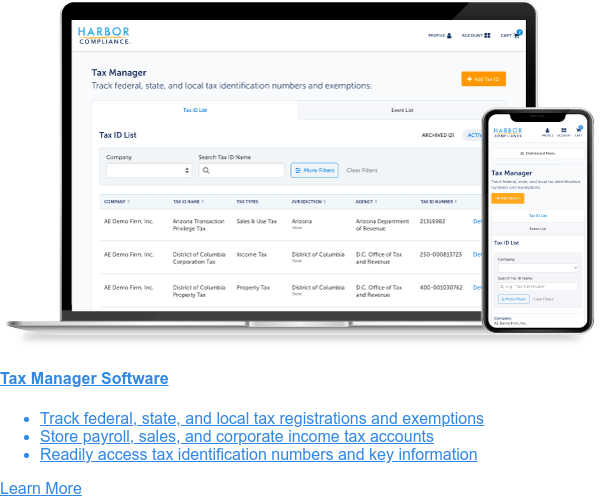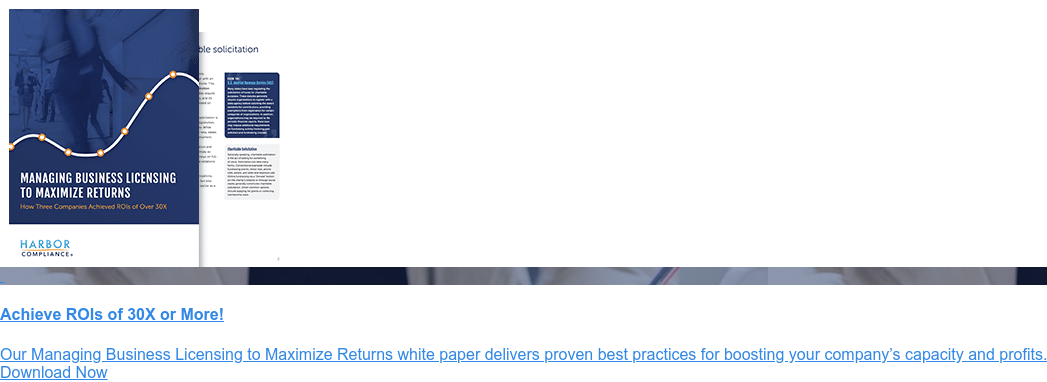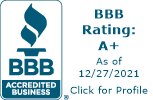Obtaining needed sales and use tax permits is a required step for all businesses and
nonprofits. The government penalizes companies that do not comply with the laws to collect and remit
tax.
This guide summarizes some of our nationwide expertise in helping clients obtain tax ids, get exemption
certificates, and maintain sales tax compliance. Depending on your organization's activities, the
following licenses may be needed:
- Sales Tax Registration
- Sales & Use Tax Ids
- Sales Tax Vendor ID Number
- Sales Tax Exemption Certificate
- Reseller Certificate
- Reseller Tax Id
- Reseller Permit
- Nonprofit Sales & Use Tax Exemption Certificate
Introduction to Sales & Use Tax
Sales tax is tax on the consumption of goods or services, most often levied to the final
purchaser at the time of sale. Contrary to popular belief, sales tax is not limited to retail sales.
Services, leases, rentals, online sales, and other transactions can be subject to sales tax, as defined
by the taxing authority. Sales tax can be levied simultaneously by state, county, and municipal agencies,
so the final sales tax charged is the sum of these rates.
Use tax goes hand-in-hand with sales tax. Use tax is a consumption tax imposed on the
consumer for out-of-state tangible personal property that is used, consumed, or stored in the state.
Use taxes are self-assessed. Typically applications for sales tax ids and use tax ids are consolidated
into one form.
Exemptions from sales and use tax are frequently available to resellers, nonprofits,
and others. While in some jurisdictions your organization must expressly apply for an exemption, in
others your organization need only present the required paperwork to the seller at the time of sale.
Nexus is the technical term for when you have legal obligations to collect and remit
sales and use tax in a given state. The burden of collecting sales tax is on the seller not the buyer,
which means that businesses and nonprofits are responsible for which geographies and transactions
they are required to collect tax. The definition varies by governing authority, but in general it is
a good idea to review your sales and use tax nexus when:
- You set up your business.
- You open a physical location in a new state.
- You hire an employee or contractor in a new state.
- You partner with an affiliate in a new state.
- You store products, distribute products, or work with a drop-shipper in a new state.
- You attend a trade show in a new state.
- Your company changes its busines structure (e.g. LLC to corporation)
Where Sales & Use Tax is Levied
Forty-five states and the District of Columbia impose sales taxes (or similar taxes, which we'll refer
to as sales tax for simplicity). Alaska, Delaware, Montana, New Hampshire, and Oregon do not collect
sales and use taxes, but all other states mandate some form of sales and use tax registration for
qualifying businesses.
Not all sales and use taxes are levied or administered by the state. There are ~11,000 sales tax
jurisdictions in the Unites States... most of these are counties, municipalities, and other
localities. Some states simplify administration by collecting local sales tax, but in states like
Arizona even cities ("non-program cities") administer their own sales tax.
Getting Sales Tax Ids
In each jurisdiction where registration is required, the seller applies for a sales tax id, collects
sales tax, and remits the tax to the governing agency. You get a Sales Tax ID Number from the
Department of Revenue (or similar agency) by submitting the appropriate application and supporting
documentation. Most states require businesses to register with the state (either incorporate or
foreign qualify) prior to applying for a sales and use tax account, and many states also ask for the
IRS-issued EIN number as a part of tax registration.
Different states may refer to sales and use tax registration as a tax account, license, or permit, so
it is important to keep this terminology straight when registering in multiple states. The majority
of states do not require a fee with registration, however, there are several states that charge a
small fee.
Some state-specific examples of the variation in the registration process include:
- Colorado, Connecticut, Florida, Hawaii, Indiana, Rhode Island, South Carolina, Wisconsin, and
Wyoming have fees for registration.
- Hawaii collects a General Excise Tax in place of a traditional sales tax.
- Wisconsin charges $20 for the first tax permit, but there is no fee for additional permits.
- Colorado’s registration fees depend on the time of year when you register and range from $4-$16.
Getting Sales Tax Exemption Certificates
Most often, but not always, the buyer is responsible for presenting evidence of tax exempt status at
the time of transaction. To do this, nonprofits, wholesalers, and others who qualify from tax exempt
certificates create an organized packet listing each tax-exempt identification number and the
appropriate certificate to present. Consider using the Uniform Sales & Use TaxExemption/Resale Certificate (Multijurisdiction).
Nonprofits should not assume they are exempt from paying sales and use tax or from collecting sales
tax on sales. In most cases, nonprofits can obtain exemptions from transactions relating to their
charitable mission. The chart below outlines each state-level process for obtaining exemption. In
addition, there are limits to granted exemptions based on whether the nonprofit is the purchaser,
seller, the type of nonprofit, and the type of transaction.





